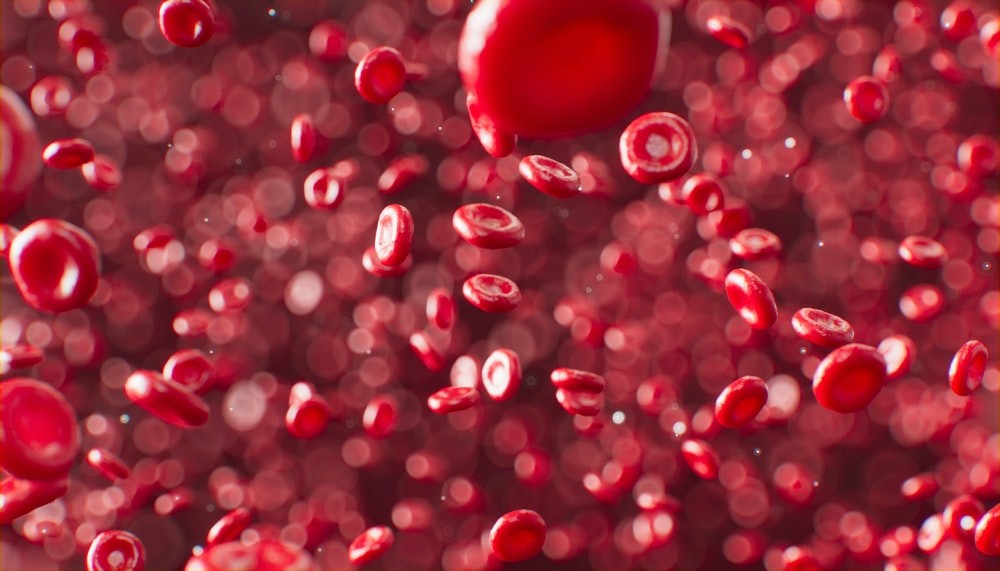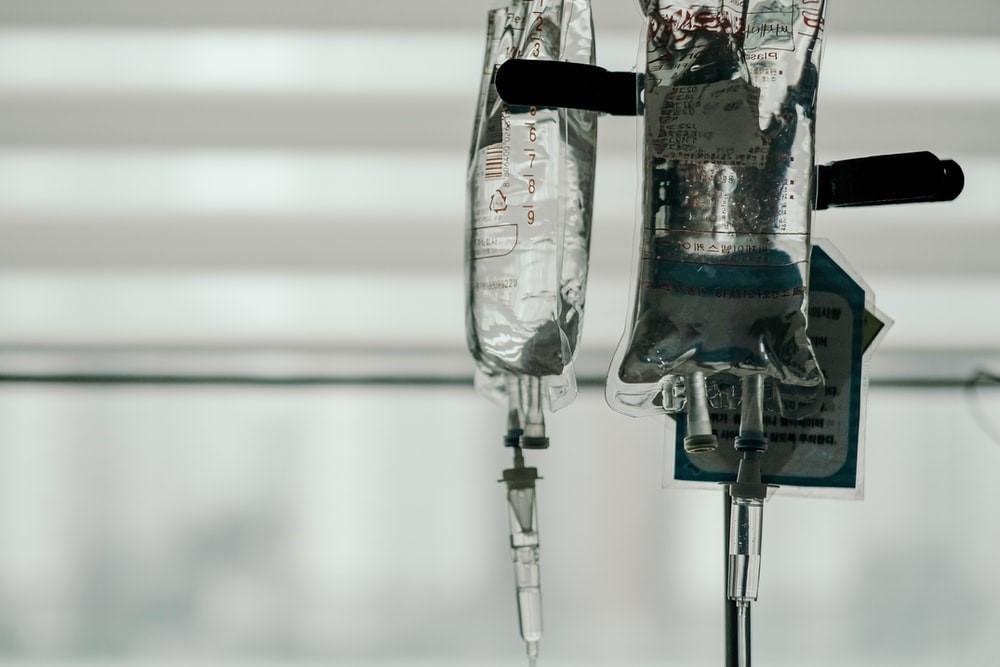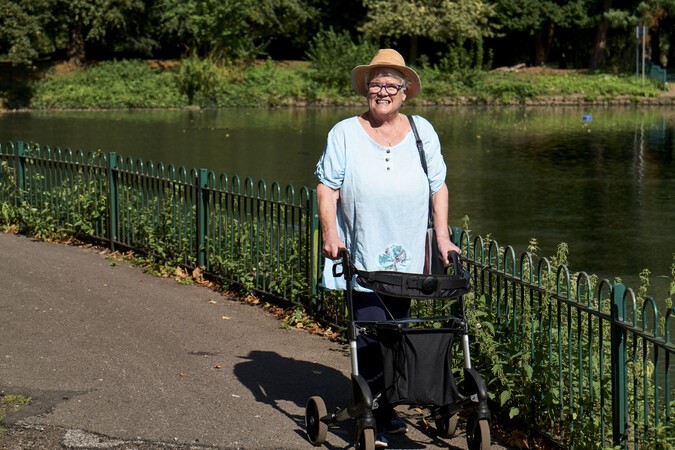Wang X, Ouyang M, Yang J, Song L, Yang M, Anderson CS. Anticoagulants for acute ischaemic stroke. Cochrane Database of Systematic Reviews. 2021, Issue 10. Art No.: CD000024. DOI: 10.1002/14651858.CD000024.pub5.
Picture this…
Alice suffered a stroke this year. A blood clot formed in one of the blood vessels around her brain, causing some nearby cells to die due to not having enough blood supply. The damage is going to affect her mobility, but fortunately hasn’t affected her memory or speech.

IMAGE 1 An illustration of red blood cells.
Photo by Anirudh on Unsplash.com
Before Alice retired, she worked in a pharmacy and so has always been curious about medicines. In her hospital bed, she examines the medications she is prescribed after her stroke, and wonders what the purpose is for each drug. Her twin, Jane, had a stroke a few years before and was prescribed exactly the same drugs, except for one. Alice is not prescribed an infusion of Heparin, unlike Jane. Heparin is an anticoagulant drug, a drug that thins the blood and can reduce blood clots. Alice wonders why she hasn’t been offered any.

IMAGE 2 Photograph of a drip stand in a hospital setting. Heparin tends to be delivered intravenously in liquid form.
Photo by Insung Yoon on Unsplash.com
Summary messages –
- The authors found that people treated after a stroke with anticoagulants benefitted from a lower risk of having another stroke and of developing another blood clot in their legs or lungs.
- Stroke patients treated with anticoagulants suffered from more bleeding.
- The drugs had no impact on the long-term disabilities that are common after a stroke.
- Overall, the benefit of fewer blood clots is outweighed by the increased risk in bleeding, so the authors do not think that giving anticoagulant drugs early after a stroke is very useful.
What the research says –
In this systematic review published in the Cochrane Library, the review authors wanted to re-assess just how useful giving anticoagulant drugs after a stroke actually is. More than 795,000 people in the USA have strokes each year, so if these types of medicine are helpful, then it could help many recover from a stroke. Alternatively, if these medicines are detrimental, stopping them being prescribed in this context could help patients. If there is no benefit or detriment, then the research could mean that one less drug is recommended. This would make things simpler for the patient and hospital, as well as being more cost-effective.
The study analysed lots of clinical trials where people who had had a stroke in the last fortnight were treated with or without the anticoagulant drugs. They looked for how well the people treated with anticoagulants recovered compared to those who didn’t have the drug treatment. They observed factors such as bleeding, having another stroke, and formation of other blood clots. The quality of the clinical trials and the certainty of their conclusions were assessed.
Anticoagulant drug treatment was concluded to be beneficial in reducing blood clot risk in peoples’ lower legs and lungs. People were also less likely to have another stroke after being treated with the drugs. However, the anticoagulant treatment increased the risk of bleeding around the brain. There was no effect of the drugs on the long-term disabilities associated with having had a stroke. Overall, it was concluded that the risk of further bleeding on the brain outweighed the potential benefits of reducing clotting.
Due to this outcome, treatment with anticoagulants is not recommended. This prevents unnecessary treatment and reduces the cost to the hospital.
It is important to note that this study only looks at one particular type of stroke and does not investigate every anticoagulant drug. It specifically only examines the effects of anticoagulant drugs when the drug is administered within 14 days of the stroke. A lot of the clinical trials that were included in the review were conducted over 20 years ago, so there could be differences in the way people react to anticoagulants due to improved care and other newer medicines that are available now. Researchers need to periodically update this type of review to include data from new clinical trials. The authors’ recommendation is that doctors do not prescribe anticoagulants immediately after a stroke because the evidence suggests that anticoagulant drugs don’t provide much overall benefit in this situation.
Where is Alice now…

IMAGE 3 Photograph showing a woman in a sunhat walking in a park using a mobility aid for assistance.
Image sourced from Centre for Ageing Better.
Alice mentioned about her sister’s stroke and asked her doctor why they hadn’t prescribed her the same Heparin drug. Her doctor says that they used to sometimes prescribe it, but as a result of recent research, have decided that Heparin would not provide a significant overall health benefit to her. Alice says that needing one fewer drug per day is a good thing. Alice is slowly recovering, and is very happy to be out and about regaining her mobility by walking with an aid.
Laura R Bramwell (Twitter: @LauraBramwell1)
RNA-Mediated Mechanisms of Disease Group, University of Exeter (UK).
Please note: The stories and pictures used do not represent specific individuals – they are merely utilised to contextualise the data into a more digestible format.
Reference points –
Wang X, Ouyang M, Yang J, Song L, Yang M, Anderson CS. Anticoagulants for acute ischaemic stroke. Cochrane Database of Sytsematic Reviews. 2021, Issue 10. Art No.: CD000024. DOI: 10.1002/14651858.CD000024.pub5.
A useful guide from Stroke.org
If you have any comments regarding this blog post, please contact us at globalageing@cochrane.org. We would love to hear your thoughts and answer any questions you may have.
Web Editor: Monserrat Conde
